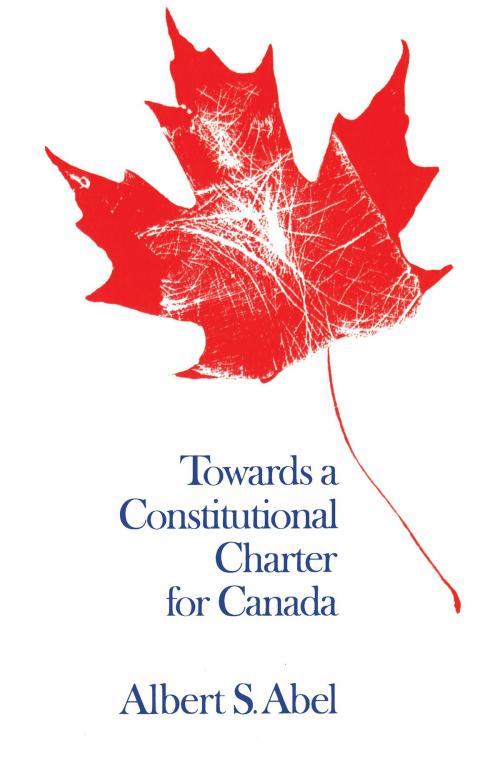Towards a Constitutional Charter for Canada
Nonfiction, Social & Cultural Studies, Political Science, International, Foreign Legal Systems| Author: | Albert Abel | ISBN: | 9781442632936 |
| Publisher: | University of Toronto Press, Scholarly Publishing Division | Publication: | December 15, 1980 |
| Imprint: | Language: | English |
| Author: | Albert Abel |
| ISBN: | 9781442632936 |
| Publisher: | University of Toronto Press, Scholarly Publishing Division |
| Publication: | December 15, 1980 |
| Imprint: | |
| Language: | English |
In this timely book, edited from a manuscript left unfinished at his death, one of Canada’s leading constitutional scholars presents his prescription for constitutional change.
The book diagnoses the failure of Canada’s present constitution, both in dealing with the country’s distinctive characteristics—regional identity and regional disparity—and in providing for effective national economic management. Drawing upon comparisons with other federal constitutions and with the European Economic Community, it proposes a new constitutional charter which would shift important responsibilities to the provinces while strengthening the economic powers of the central government. Specific recommendations are set out for a provincial residuary power, restructured taxing and spending powers, and a Canadian Equalization Council—the last a unique redistributive mechanism designed to ensure that residents of every province have access to adequate government services. Throughout, the plan pays close attention to the need to formulate constitutional provisions in a way which protects them against distortion by subsequent interpretation.
At a time when the need for solutions to Canada’s constitutional problems has never been more pressing, Albert Abel’s is a particularly valuable individual contribution to the Canadian constitutional debate.
In this timely book, edited from a manuscript left unfinished at his death, one of Canada’s leading constitutional scholars presents his prescription for constitutional change.
The book diagnoses the failure of Canada’s present constitution, both in dealing with the country’s distinctive characteristics—regional identity and regional disparity—and in providing for effective national economic management. Drawing upon comparisons with other federal constitutions and with the European Economic Community, it proposes a new constitutional charter which would shift important responsibilities to the provinces while strengthening the economic powers of the central government. Specific recommendations are set out for a provincial residuary power, restructured taxing and spending powers, and a Canadian Equalization Council—the last a unique redistributive mechanism designed to ensure that residents of every province have access to adequate government services. Throughout, the plan pays close attention to the need to formulate constitutional provisions in a way which protects them against distortion by subsequent interpretation.
At a time when the need for solutions to Canada’s constitutional problems has never been more pressing, Albert Abel’s is a particularly valuable individual contribution to the Canadian constitutional debate.















